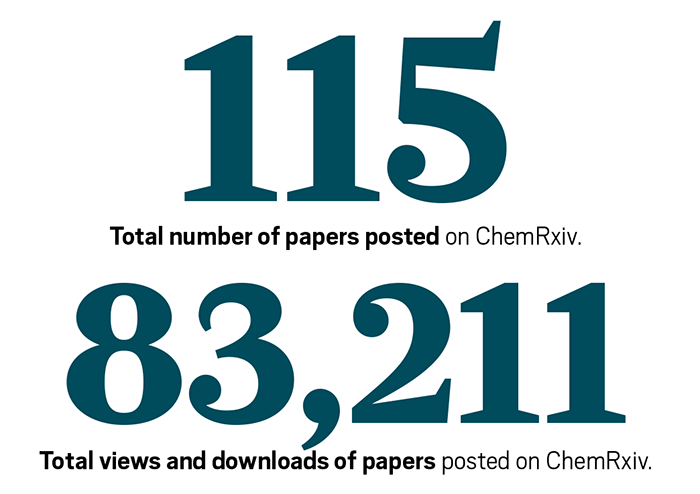Advertisement
Grab your lab coat. Let's get started
Welcome!
Welcome!
Create an account below to get 6 C&EN articles per month, receive newsletters and more - all free.
It seems this is your first time logging in online. Please enter the following information to continue.
As an ACS member you automatically get access to this site. All we need is few more details to create your reading experience.
Not you? Sign in with a different account.
Not you? Sign in with a different account.
ERROR 1
ERROR 1
ERROR 2
ERROR 2
ERROR 2
ERROR 2
ERROR 2
Password and Confirm password must match.
If you have an ACS member number, please enter it here so we can link this account to your membership. (optional)
ERROR 2
ACS values your privacy. By submitting your information, you are gaining access to C&EN and subscribing to our weekly newsletter. We use the information you provide to make your reading experience better, and we will never sell your data to third party members.
Policy
Scientific publishing
October 23, 2006
| A version of this story appeared in
Volume 84, Issue 43
Sept. 18, page 16. Vitamin C was incorrectly identified as citric acid. It is ascorbic acid.
Oct. 9, page 12. The article on brain chemistry should have included the following reference information for the work cited: Science 2006, 314, 130.
As an author of more than 100 journal articles, a reader of almost 40 years of journal subscriptions, and an avid user of many hard-copy and online journals, I have followed with interest the evolution of electronic publishing. My conclusion agrees with that of the business world, namely that online is the future and that most content will be free to the viewer. Professional societies and the commercial publishers are trying to figure out how to respond.
Quality refereeing will remain the endorsement that marks scientific research publications that are worth reading. However, that issue is not necessarily associated with costs that must be paid by the reader or with the origin of the funding that supported the research being reported. The majority of my research has been federally funded and reported in journals published by professional societies, and page charges were paid from the corresponding federal grants and contracts. This sounds like a good argument that such information should be publicly available at very low cost.
The U.S. and European astronomy societies have chosen to provide free online access to journal articles more than a few years old through the NASA-supported Astrophysical Data System (www.adsabs.harvard.edu/). Note that ADS includes much more than astronomy and is a primary resource for Google Scholar. The American Geophysical Union provides free online access to members for all articles published a year or more ago. The American Institute of Physics and the American Physical Society offer economical online access to members and subscribers.
The vitality of the chemistry research community depends on ACS leading the evolution of the future rather than dragging its feet all the way.
David L. Huestis
Menlo Park, Calif.



Join the conversation
Contact the reporter
Submit a Letter to the Editor for publication
Engage with us on Twitter